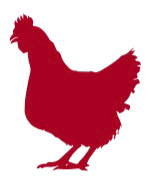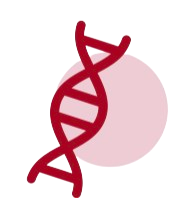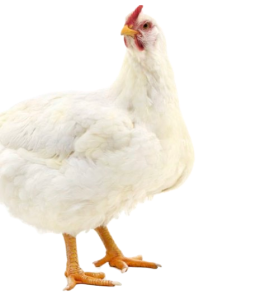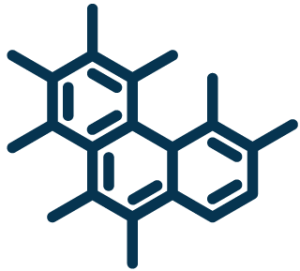06 Sep 2024
The Role of Research and Methionine in Brazilian Poultry Production
![]() Brazilian poultry farming has stood out globally, a result of investments in research and the productive organization of the sector. In 2022, Brazil exported 4.822 million tons of chicken meat, making it the second-largest producer in the world, behind only the United States. The southern region of Brazil is responsible for more than 70% of this production (ABPA, 2022).
Brazilian poultry farming has stood out globally, a result of investments in research and the productive organization of the sector. In 2022, Brazil exported 4.822 million tons of chicken meat, making it the second-largest producer in the world, behind only the United States. The southern region of Brazil is responsible for more than 70% of this production (ABPA, 2022).
 This success was only possible due to advancements in research on poultry nutrition and genetics. These investigations have led to the development of birds with a better nutrient intake-to-muscle tissue conversion ratio, as well as high-quality cuts like thighs and breasts. However, these improvements have also brought more specific physiological and nutritional demands, requiring ongoing research to better understand these phenomena.
This success was only possible due to advancements in research on poultry nutrition and genetics. These investigations have led to the development of birds with a better nutrient intake-to-muscle tissue conversion ratio, as well as high-quality cuts like thighs and breasts. However, these improvements have also brought more specific physiological and nutritional demands, requiring ongoing research to better understand these phenomena.



The Role of Nutrients in Poultry Nutrition
Nutrients are not only essential for metabolic functions, but they also play a fundamental role in cellular signaling systems. These systems require sensors or receptors to decode and transmit information, allowing cells to adapt to environmental changes. This can include alterations in gene expression, RNA and protein stability, and protein activity.
 One way to understand the integrated action of nutrients in the animal body is through nutrigenomics, which explores the interaction between genes, diet, environmental factors, and gut microorganisms. This area investigates how these interactions affect digestion, absorption, excretion of nutrients, and animal metabolism.
One way to understand the integrated action of nutrients in the animal body is through nutrigenomics, which explores the interaction between genes, diet, environmental factors, and gut microorganisms. This area investigates how these interactions affect digestion, absorption, excretion of nutrients, and animal metabolism.
Post-Genomic Sequencing Research in Poultry Nutrition
![]() Since the sequencing of the poultry genome, numerous studies have explored the effects of nutrition on gene expression. Among the essential nutrients, methionine has garnered attention for its role in protein synthesis and as an antioxidant.
Since the sequencing of the poultry genome, numerous studies have explored the effects of nutrition on gene expression. Among the essential nutrients, methionine has garnered attention for its role in protein synthesis and as an antioxidant.
Investments in research, combined with the productive organization of the poultry sector, have positioned Brazil as a global leader in poultry production and a key player in consumer markets. In 2022, the country exported 4.822 million tons of chicken meat, making it the second-largest producer of chicken globally, trailing only the U.S. The southern states of Brazil are responsible for over 70% of this production (ABPA, 2022).
This success would not have been possible without research into poultry nutrition and genetics. Such studies have led to birds with an improved nutrient intake-to-muscle conversion ratio and high-quality cuts like thighs and breasts. However, these advancements have also resulted in more specific physiological and nutritional needs, necessitating continued research to fully understand these phenomena.
Nutrients: More Than Just Metabolism
Nutrients are not only vital for metabolic functions, but they also play a crucial role in cell signaling systems. When a system transmits information, the signal requires a sensor or receptor to decode and relay the information. Receptors, which are proteins, transmit these signals to the cell nucleus via transduction mechanisms, enabling the cell to adapt to changes in the environment. This process can affect gene expression, RNA stability, protein translation, and overall protein activity.
A comprehensive understanding of how nutrients interact in animal bodies is achieved at the molecular level, which is where nutrigenomics comes in. This field explains the interaction between genes, diet, environmental factors, and gut microorganisms, and how this interplay affects digestion, nutrient absorption, excretion, and animal metabolism.
Post-Genomic Sequencing Research in Poultry Nutrition
Since the sequencing of the poultry genome, various studies have explored the effects of nutrition on gene expression in these animals. Dietary proteins provide essential amino acids, which the body cannot synthesize on its own. After ingestion and degradation, these nutrients are transported out of epithelial cells through basolateral membrane transporters. Amino acids are absorbed either as free amino acids or as small peptides, facilitated by specific transporters.
Diet Composition and Amino Acid Supplementation
 Diet composition helps birds overcome daily environmental challenges. Given that poultry diets are largely composed of corn and soybean meal, the supplementation of amino acids becomes necessary. Amino acids are the building blocks of proteins, making them essential for the birds’ development by modulating various pathways critical to maintaining their physiological state.
Diet composition helps birds overcome daily environmental challenges. Given that poultry diets are largely composed of corn and soybean meal, the supplementation of amino acids becomes necessary. Amino acids are the building blocks of proteins, making them essential for the birds’ development by modulating various pathways critical to maintaining their physiological state.
Methionine: A Key Amino Acid in Poultry Nutrition
In poultry nutrition, methionine is often the first amino acid mentioned. Beyond its role in tissue formation, methionine is a major ally in mitigating damage caused by heat stress.
The Importance of Methionine in Poultry Diets
 Methionine is a sulfur-containing amino acid essential for poultry. Discovered in 1922 by John Howard Mueller, its chemical formula was identified in 1928 by George Barger and Frederick Philip Coyne, who proposed the name methionine.
Methionine is a sulfur-containing amino acid essential for poultry. Discovered in 1922 by John Howard Mueller, its chemical formula was identified in 1928 by George Barger and Frederick Philip Coyne, who proposed the name methionine.
| In animal nutrition, methionine is widely used due to its multiple functions. In addition to participating in protein synthesis, it is a precursor to cysteine, an amino acid crucial for the formation of immunoglobulins and insulin, as well as skin and feathers. Due to its antioxidant function, methionine also helps birds cope with heat stress, strengthening their immune system and promoting growth. |
Conclusions
The supplementation of methionine in poultry diets is essential to ensure proper bird development, promoting protein synthesis, feather health, and resistance to oxidative stress.

- In the next part of this article, the effects of methionine on the antioxidant status of birds will be discussed.
